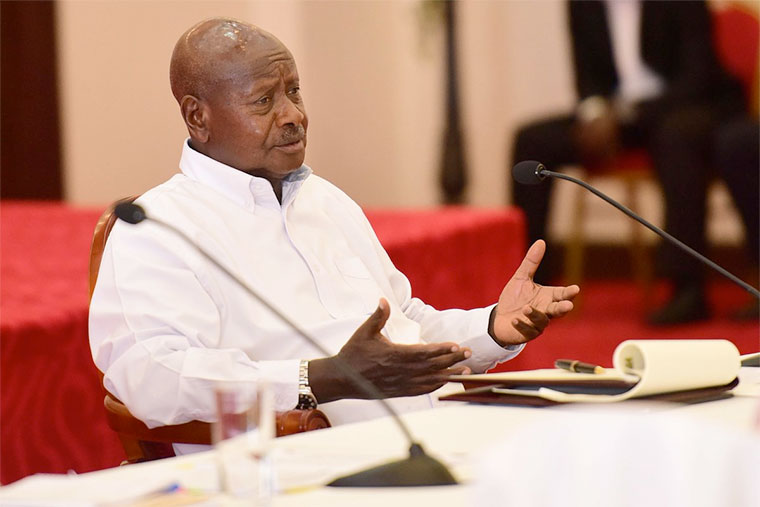By Yoweri K. Museveni
In Uganda, schools recently reopened to face-to-face teaching for the first time in 24 months. Buying time through various forms of lockdown, the vaccines we need to safely reopen have begun to arrive in recent months and we are on our back to the mend and to the growth that has been constricted by the pandemic.
Amongst others, credit is due to the African Union (AU) securing the doses for equitable distribution across the continent. It means today twenty percent of Uganda’s
46 million population – the majority of adults – have at least one dose. Though the battle before us remains uphill, these achievements reveal both how Africa can succeed through collective effort, and how prospects for our 1.3 billion citizens and our continent’s place in the world are entwined.
As we meet virtually for the UK-Africa summit, the United Kingdom too is alive to the promise of African unity. Since the inaugural event two years ago, the UK has become the first non-African nation to sign a Memorandum of Understanding with the African
Continental Free Trade Area (AfCFTA).
For the AU, it offers our continent – a $3 trillion market – more bargaining power with a developed country in the global economy such as Britain, which post-EU departure has revealed new-found determination to build positive trade relations back in Africa.
The inheritance of colonialism has meant our countries do not trade as they should.
In the past, it has caused us to look outwards alone. Our infrastructure is geared toward extraction of commodities and export, whilst our intra-continental trade is the least developed in the world.
Moreover, given the position of each country or even regional bloc, the poweri dfferentials made any decent trade terms impossible. Taken together, they are a failure of our potential; shackling our common prosperity across the continent – a rising tide that could lift all nations more than any single one could through their own bilateral.
In hindsight, former deals may look short-sighted. But when unfavourable terms are the only terms on offer, there is little other choice.
Now there is another way: an economic new deal for Africa founded on unity vested
in AfCFTA. Countries will still try to pick off trading partners to gain favourable agreements. Preferential access for a few agricultural goods to the markets of rich economies may be threatened. In response, Africa nations must reject the short-term
incentives and speak in one collective voice. Only then can it avoid the iniquitous terms
that have stifled the continent’s development and industrialisation.
A UK-Africa Free Trade Deal could light the path for others to follow. And once there is this first precedent, reversion to the old will become increasingly difficult. Already, the current United States administration has now shown interest in negotiation with
Africa as one – a stark change in direction from its predecessor.
Yoweri Museveni is the President of the Republic of Uganda




